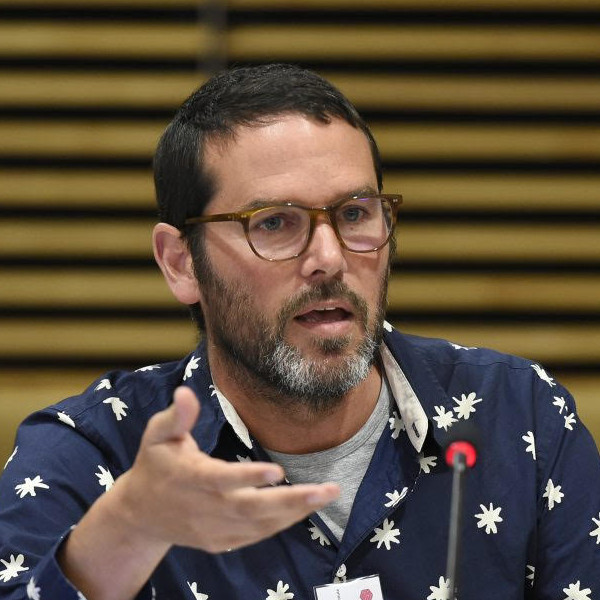![Reconstrained Design]() Talk
Talk
Reconstrained Design
Design practice always happens under a particular set of forces, commonly known as constraints. These constraints may be straightforward and indisputable, such as a physical or material quality: the force of gravity, the tensile strength of a structural beam, or a financial budget, and provide tangible limits to be adhered to or challenged.
Constraints, however, also exist in more abstract, systemic or hidden forms.
These can have a significant impact on the potential of design, resulting in a paucity of original thinking and a chronic neglect of responsibility. For example, national systems of infrastructure, such as energy grids or roads, have become so normalised that they constrain designers to simply designing for or within the dominant paradigm. The constraint of positivity or progress dogma, blinds those influencing the future (scientists, technologists, politicians, designers, etc.) from the potential negative implications of their proposals.
This presentation will firstly explore some of the more dominant oblique constraints and the ways in which they negatively influence the role and purpose of design. And secondly describe how design, practiced outside of these constraints, can facilitate more inclusive, holistic, and environmentally responsible futures.

James Auger
James Auger est enseignant chercheur et directeur adjoint au département de design de l'École normale supérieure Paris-Saclay. Entre 2005 et 2015, il a fait partie du département Design Interactions acclamé par la critique du Royal College of Art (RCA), enseignant dans le programme de maîtrise et travaillant sur le développement d'approches critiques et spéculatives de la conception et de la technologie, complétant son doctorat sur le sujet en 2012. Après le RCA, James a déménagé au Portugal pour mener des recherches au Madeira Interactive Technologies Institute (ITI), cofondant le Reconstrained Design Group avec Julian Hanna et développant des projets qui exploraient le potentiel de l'île en tant que laboratoire vivant expérimental grâce à une combinaison de propositions et de projets multi-échelles fictifs, factuels et fonctionnels liés à l'énergie. James est également partenaire de la pratique de conception spéculative Auger-Loizeau, une collaboration fondée en 2000. Les projets Auger-Loizeau ont été publiés et exposés à l'international, notamment au MoMA, New York; 21_21, Tokyo; Le Science Museum, Londres; Musée national de Chine, Pékin et Ars Electronica, Linz. Leur travail est dans la collection permanente du MoMA.
























